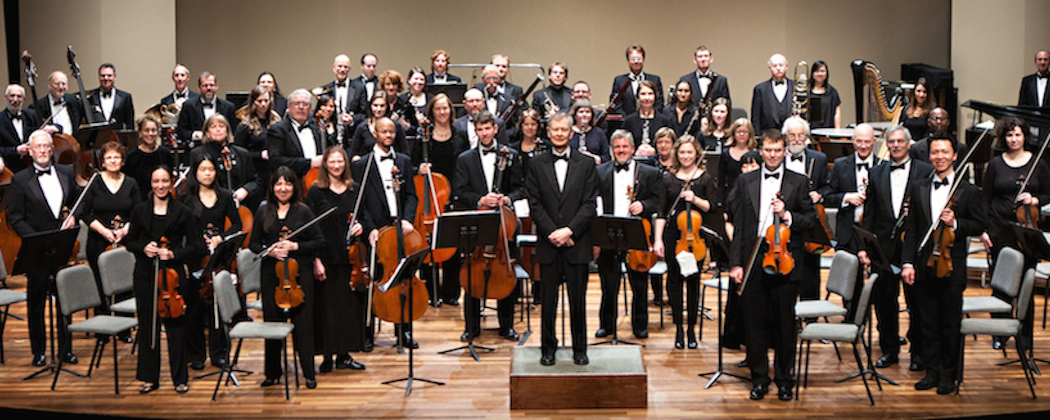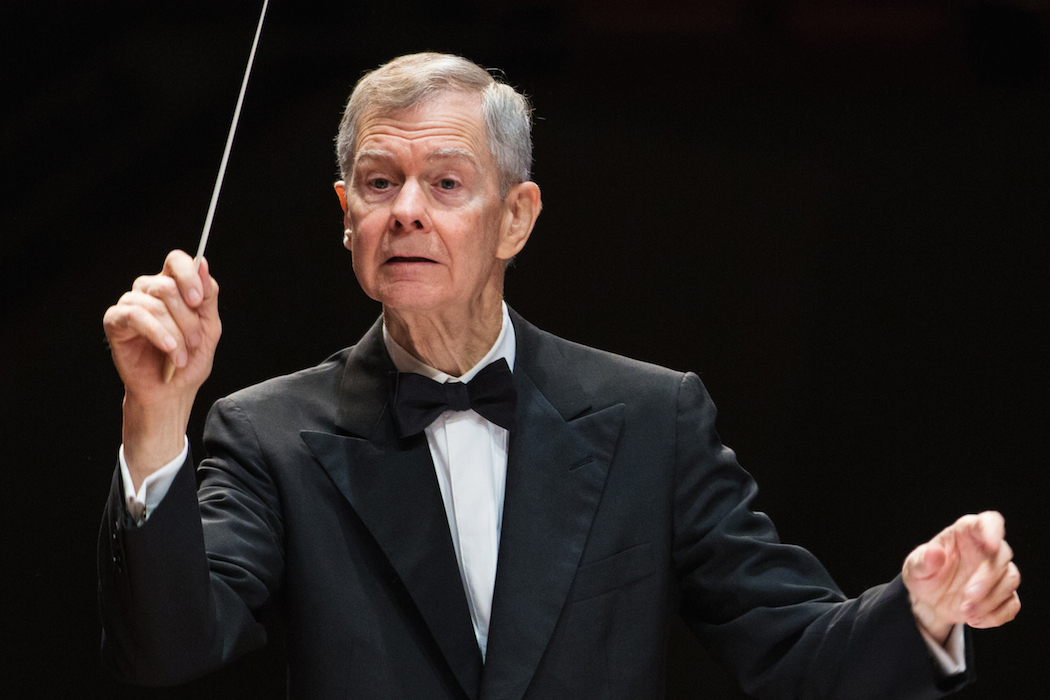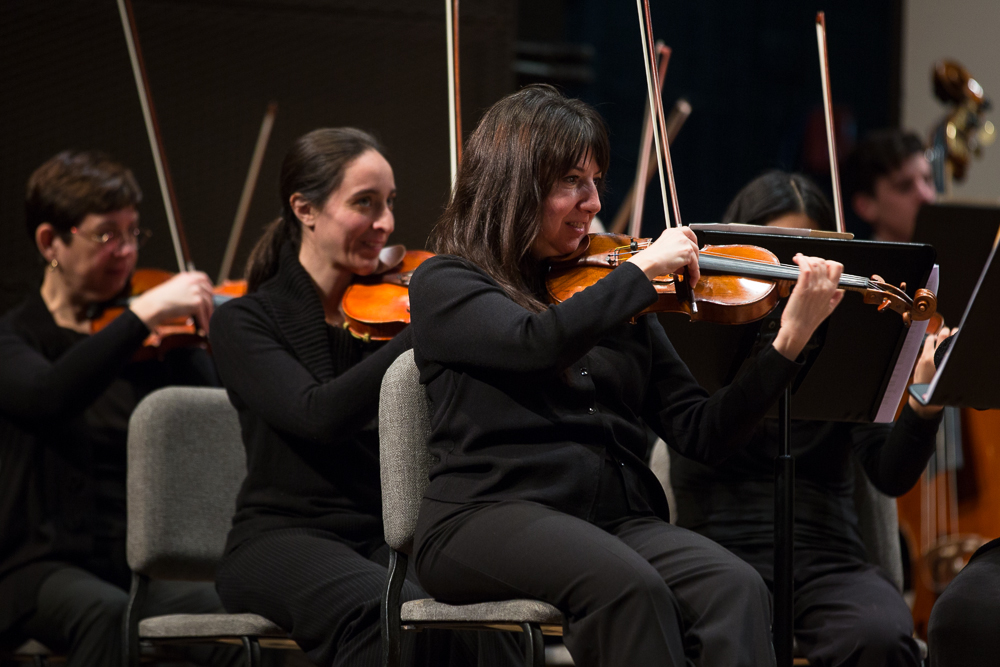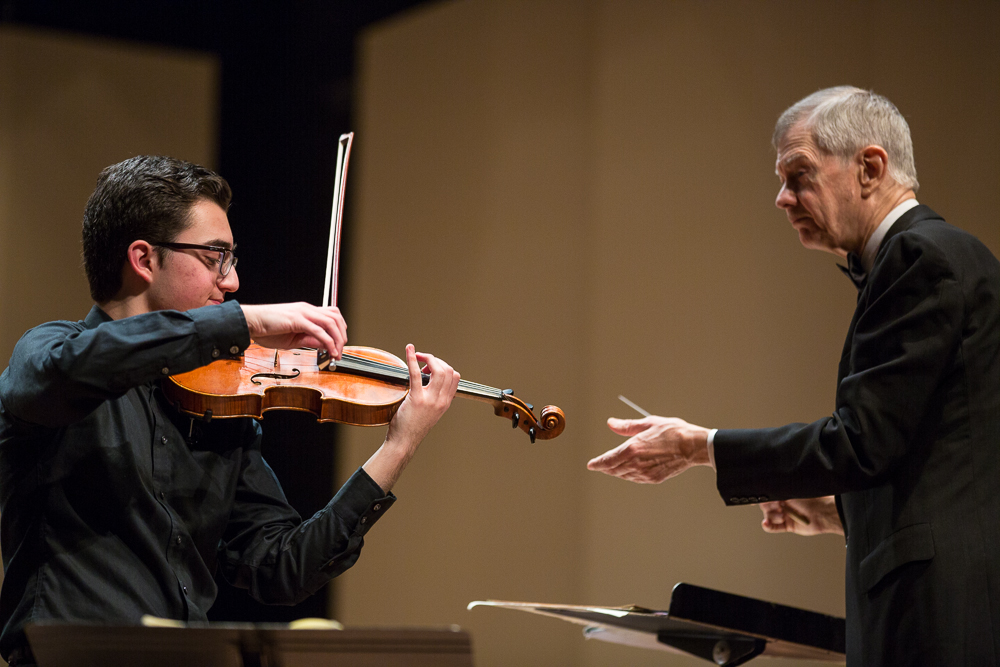Advertisement
The New England Philharmonic Is Still Making It New

BOSTON— Nine ASCAP awards. A Pulitzer Prize-winning composer laureate. Premieres at every concert. A distinguished list of composers-in-residence. Annual young artist competitions. A music director with international credentials. This sounds like a major symphony orchestra, with a big budget to spend and plenty of artistic energy.
Well, only part of that is right. The artistic energy part. The New England Philharmonic, an amateur orchestra under the direction of Richard Pittman, extends its history of creative programming and challenging music for a 38th season when it presents its season-opening concert Oct. 25 at the Tsai Performance Center at Boston University.
Conducting new music, for amateur musicians who come together simply for the love of music making, adds a layer of complexity to Pittman’s role as music director.
“It’s a juggling act,” Pittman says. “I feel like we should do music that needs to be heard, from composers who need to hear their own music, and that we should explore the music of our time. I want it to be fun, to be satisfying, and, since it’s a volunteer orchestra, attractive enough for good players to join and stay with us.”
Pittman doesn’t dumb down his programs just because his musicians aren’t full-time professionals. Opening night features world premieres by the current composer-in-residence, David Rakowski, his Symphony No. 5, called “Dance Episodes,” and Bernard Hoffer’s “Ligeti-Split.” It also includes Ligeti’s own “Ramifications” for string orchestra, Stravinsky’s “Capriccio for Piano and Orchestra” (Randall Hodgkinson, soloist), and Ravel’s “La Valse.” Pittman calls the program “Shall We Dance?”

“The composer-in-residence writes a new piece every year for us,” Pittman says. “David Rakowski is part of a distinguished group that has been with us — Michael Gandolfi, Peter Child, Andy Vores, Marjorie Merryman, Richard Cornell. They write a piece, and then help us with the score.
“At first David’s piece was supposed to be just one ‘Dance Episode,’ as he called it, but he had so much fun he wrote a whole symphony. The fee our composers get may not be as high as some other places, but we’ve premiered some terrific music. The Ligeti piece is really the most challenging on the whole program, and Bernard’s piece pays tribute to it by lifting these chords out of it — they are really jazz chords — and building on that.”
In matters of training and programming, Pittman relies on the experience of concertmaster Danielle Maddon, a well known area violinist who is the orchestra’s only paid player.

“She’s a wonderful leader, a terrific teacher,” Pittman says. “Danielle can be quite a bit of a nag if things are not right, but her skills as a people person go a long way. We’ve got a huge mix of players — some very good, some pretty good, and some weak — and they need some extra time and attention. Some of our players are union members who just like playing our music. We have seven or eight rehearsals, on a weekly basis, and that usually turns out to be enough. If you’ve got the right people involved you can make it happen. Danielle is one of them.”
Pittman has been leading adventurous programs in Boston for more than four decades, not only with the NE Phil but with two other ensembles, Boston Musica Viva, which he founded in 1969, and the Concord Symphony, which he took over in the same year.
Boston Musica Viva has its own legacy of commissions, world premieres, and musical breakthroughs. The first American ensemble entirely devoted to contemporary music, BMV was an early supporter of composers like Steven Stucky, Ellen Taaffe Zwilich, and John Harbison, all prominent in the contemporary musical landscape. Pittman has led the Concord Symphony, a regional ensemble that has toured Eastern Europe, through equally demanding repertory.
Pittman’s own training came from the Hochschule für Musik in Hamburg and Baltimore’s Peabody Conservatory, and before he took up the baton he was a trombonist in the National Symphony and the U.S. Army Field Band. Pittman subsequently studied conducting with Sergiu Celibidache, Laszlo Halasz, Walter Susskind, and Pierre Boulez.
Apart from his work in Boston, he’s been a frequent guest conductor of the BBC symphony orchestras over the years, and guested internationally with multiple ensembles all over Europe and in Russia. He had a long affiliation with New England Conservatory as well, teaching orchestral conducting for almost two decades. It’s been a lifetime spent enthusiastically championing living composers and their works.
“I want to program things that show connections,” he says. “Everything in music is a kind of evolution, even if a generation decides that they have to be in direct opposition to everything that’s come before them. I use my best judgment in terms of technical difficulty. If I’m in doubt, I run the score by Danielle and get her input. She can tell me whether we’re up to it, or whether we don’t have the rehearsal time to make it work. That happens. But I have yet to tackle a score that we couldn’t perform with some passion and sympathy. Sometimes, if a piece is really hard, there are performances that are less than ideal.”
There are also many performances that sparkle. Of particular note, during its 35th anniversary season Pittman led the NE Phil through large-scale performances of Benjamin Britten’s “War Requiem” in Providence and Boston.

“The Cathedral of the Holy Cross in Boston was full for that,” Pittman says, noting that he’s hoping for the same enthusiasm when they do Britten’s “Spring Symphony” in March. The NE Phil’s concert staging of Berg’s opera “Wozzeck,” in 2007, is still remembered for its vibrant attention to detail.
The rest of the NE Phil season features more of the same — music by composers who are still around to hear their own creations. A December family concert has Gandolfi’s “Night Train to Perugia”—“it’s about the particle tunnel in the Swiss Alps,” Pittman says, “surrealistic, with train horns and whistles”— and Rob Kapilow’s setting of the Chris van Allsburg children’s touchstone, “The Polar Express.”
In March Pittman pairs the “Spring Symphony” with Harbison’s “Darkbloom,” the overture to an opera that was never completed. Premieres of Andy Vores’s second violin concerto, and a work by young composer Matthew Browne, “How the Solar System Was Won,” highlight the season finale in May. Gunther Schuller’s “Meditation” rounds out that program.
“Gunther is our composer laureate,” Pittman says of the 88-year-old Pulitzer Prize winner, a gigantic presence on the Boston music scene. “That gives me an excuse to perform a piece of his every year. ‘Meditation’ is the second piece he ever wrote for orchestra, really at the beginning of his career as a composer.”
Pittman did not found the NE Phil, which began as the Mystic Valley Chamber Orchestra in 1976, but his presence has been there from the beginning, as has the orchestra’s commitment to contemporary music. One of its first conductors, Charles Ellis, was a student of Pittman’s at New England Conservatory.
“The orchestra has had a composer-in-residence from early on, as well as calling for new scores from the beginning,” Pittman says. “The emphasis on new music was always there. Like Charles Ellis, some of the players and composers have been students of mine. When we execute a piece, we are reflecting the spirit of the people who were there at the beginning. It’s been a consistent commitment.”